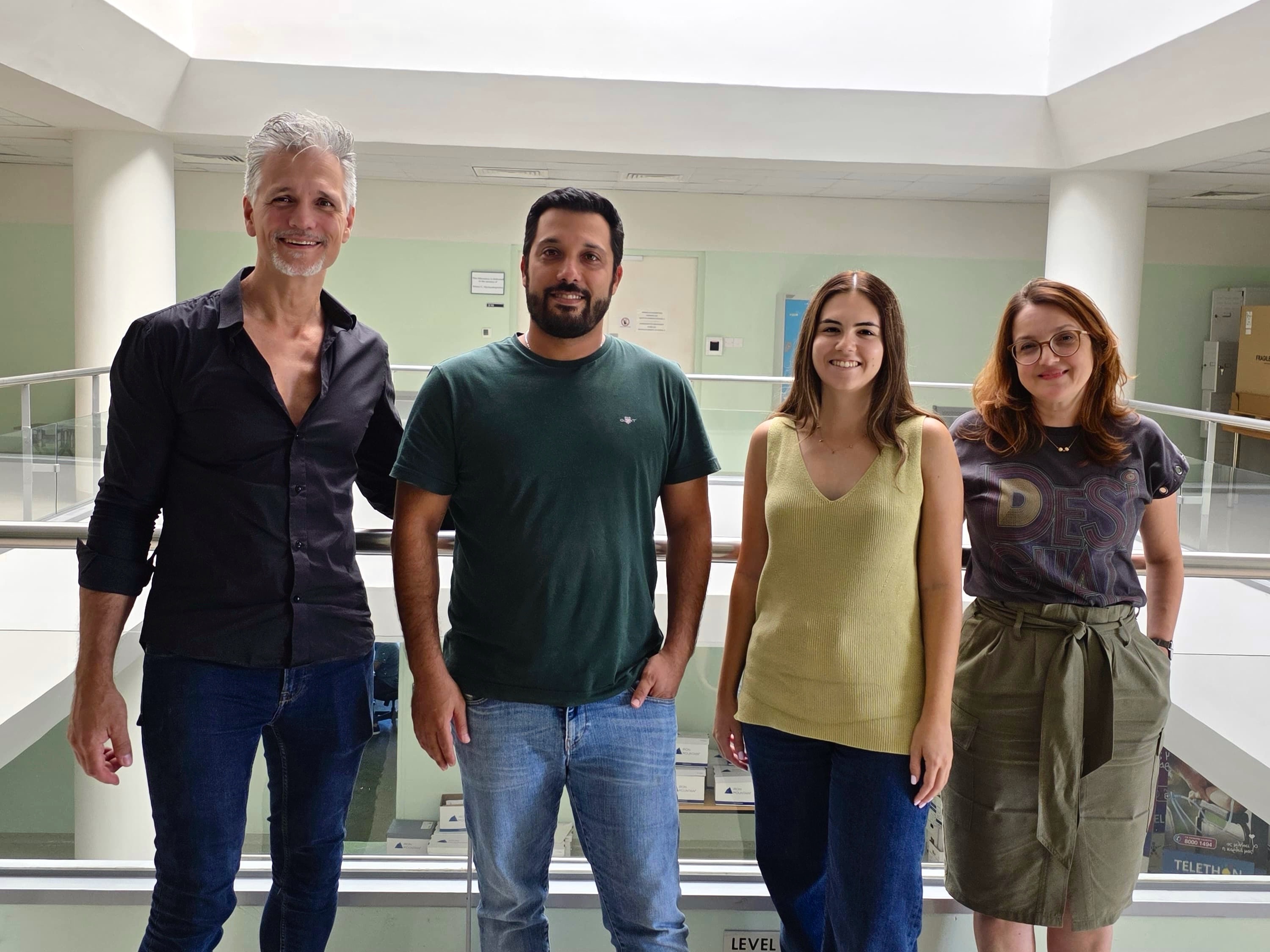New gene-editing project targets thalassaemia’s root cause
A new research project at the Cyprus Institute of Neurology and Genetics (CING) aims to develop a one-time, curative therapy for beta-thalassaemia, the most common inherited blood disorder in Cyprus.
The Molecular Genetics Thalassaemia Department (MGTD) of the institute has announced the launch of the BETA-BET: Targeted Base Editing for Beta Thalassaemia project, which seeks to advance a personalised gene therapy targeting the HBBIVSI-110 mutation — the most frequent cause of the disease on the island.
Beta-thalassaemia is a severe hereditary condition caused by mutations in the β-globin gene (HBB), which encodes a crucial part of haemoglobin, the protein that transports oxygen through the blood.
People living with the disease typically rely on lifelong blood transfusions to manage chronic anaemia and to compensate for the body’s inability to produce effective red blood cells.
The new 24-month project, which officially began on June 1, 2025, is supported by a total budget of €198.83 million, funded by the Research and Innovation Foundation (RIF) and co-funded by the European Union and the Republic of Cyprus.
The initiative builds on the success of a previous RIF-funded project conducted in collaboration with George Papanikolaou Hospital, the Aristotle University of Thessaloniki in Greece, and the University of Freiburg in Germany.
That earlier study provided a preclinical evaluation of gene-editing tools in stem cells from individuals carrying two copies of the HBBIVSI-110 mutation, also known as homozygotes.
Researchers demonstrated that these tools could efficiently correct the genetic defect, restore normal red blood cell production, and allow corrected cells to survive and function over the long term in preclinical models, surpassing the results of other nuclease-based approaches.
The new BETA-BET project has two main scientific goals.
The first is to expand and validate the effectiveness of “base editing” technology for a wider group of patients known as compound heterozygotes, who carry the HBBIVSI-110 mutation alongside another mutation in the same gene.
Globally, these patients are more than three times as common as homozygotes, making this research particularly relevant in countries such as Greece and Egypt, where the HBBIVSI-110 mutation affects over 19 per cent of the population.
Base editing works like a microscopic “biological pencil and eraser,” precisely identifying and correcting a single “letter” error in the DNA sequence without cutting the DNA strands.
Because of this precision, the method offers a safer and more controlled form of gene therapy compared with older technologies.
By proving its success in a broader range of patients, the researchers hope to make the treatment clinically applicable to many more people with thalassaemia in Cyprus and worldwide.
The second goal focuses on developing a new delivery platform using engineered virus-like particles (eVLPs).
These act like “microscopic delivery drones,” designed to transport the gene-editing tools directly to blood-producing stem cells.
This technology could one day allow treatment to be administered as a simple injection, potentially eliminating the need for the current complex and costly process of removing, editing, and reinfusing stem cells.
The project is coordinated by Dr Petros Patsali, Associate Scientist at MGTD, alongside Dr Carsten W. Lederer, Head of Department, Dr Nikoletta Papaioannou, Postdoctoral Researcher, and Dr Panayiota Papasavva, Hematologist and Clinician-Researcher.
The research team works with a network of national and international partners, including Dr Soteroula Christou from the State Health Services Organization’s Thalassaemia Clinic in Cyprus, Prof Dr Toni Cathomen from the University Medical Center Freiburg in Germany, Dr Annarita Miccio from the Imagine Institute of Genetic Diseases in France, and Dr Maria N. Dimopoulou from Laiko General Hospital in Athens.
“The BETA-BET programme represents a crucial step toward a potential cure for the majority of people living with thalassaemia,” the institute said.
By broadening the therapy’s reach and developing a safer delivery system, the Cyprus Institute of Neurology and Genetics believes this research could bring a personalised, one-time treatment within reach for many patients who currently depend on lifelong transfusions.






Click here to change your cookie preferences